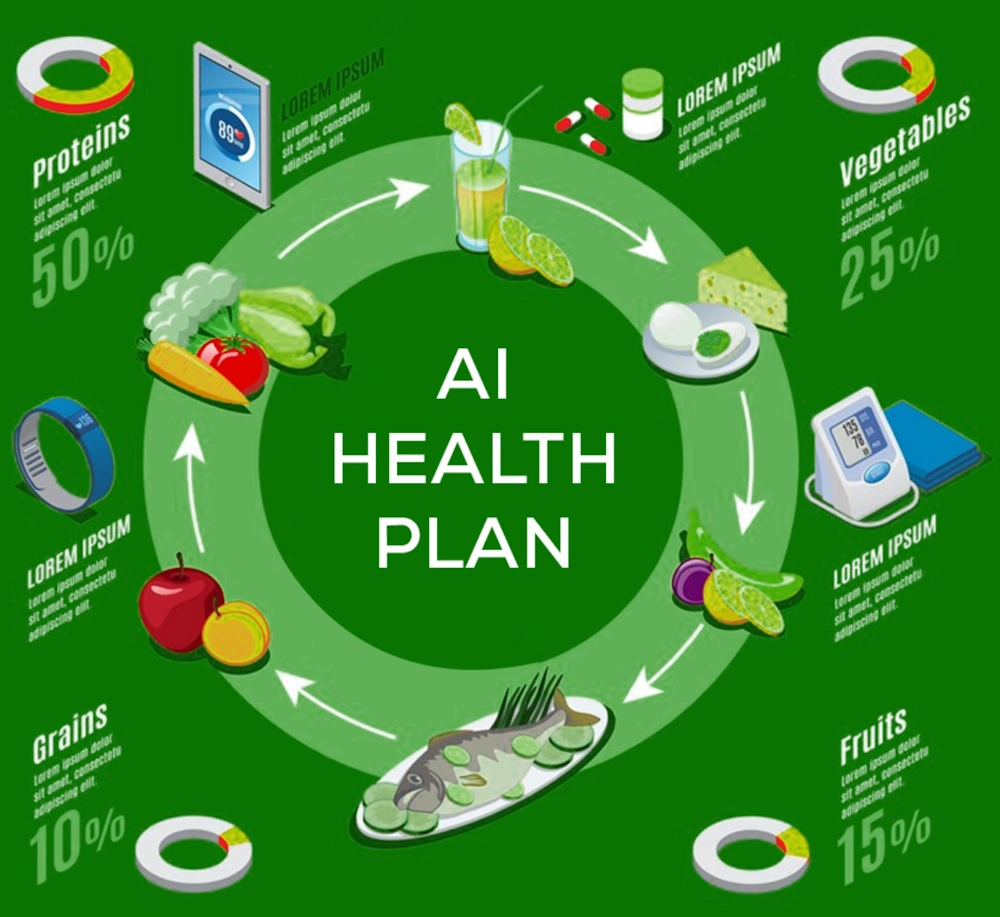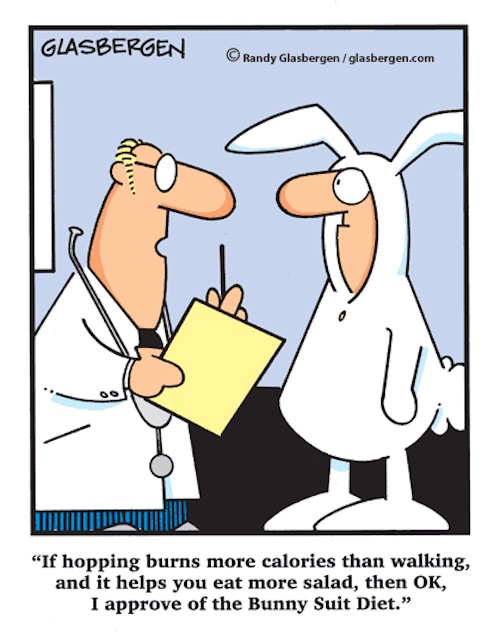 AI in Food and Diet
AI in Food and Diet
Find an optimal diet, discover exciting recipes, and more using AI
AI is changing how we eat, track, and manage nutrition by providing customized diet plans, real-time health monitoring, and AI-powered food recommendations, driven by AI and DNA analysis.
 Personalized Diet Plans
Personalized Diet Plans
AI analyzes your health data, food preferences, and lifestyle to create custom meal plans that meet your nutritional needs. There are smart meal planning apps available where AI suggests balanced meals based on your dietary goals. AI-based calorie tracking can be obtained from apps like MyFitnessPal and Lumen. These apps analyze what you eat and recommend improvements. There are even AI-powered services like DNAfit and Nutrigenomix that analyze your genetics to recommend personalized diets based on your unique genetic profile.

Having a personal nutritionist available at all times is a goal of diet AI.
The use of AI in personalized nutrition is changing the way we approach our diets, offering recommendations based on individual needs and preferences. Traditional dietary guidelines often follow a one-size-fits-all approach, which might not be effective for everyone. On the other hand, AI technology enables a more customized approach to nutrition, considering everything from DNA to daily habits to recommend the best foods for individuals. These intelligent systems can provide real-time advice and adjustments to your diet, ensuring you stay on track with your health goals.
The latest trend in nutrition isn't a fad diet or newly discovered supplement; it's your DNA
DNAfit is a direct-to-consumer genetic testing company that provides DNA-based insights into diet, fitness, and wellness. The company provides people with a simple way to understand how their genes affect their health and fitness. The company offers three main products: Diet Fit, Heath Fit, and Circle Premium, with the latter being its most comprehensive option. Each kit provides everything you need to collect a DNA sample from home and send it to their state-of-the-art laboratory for analysis. Once the results are ready, you'll receive a personalized report with actionable insights and recommendations based on your unique genetic makeup.
"When you think about moving from a one-size-fits-all approach to food to something that's highly personalized, it changes everything. It changes the way you shop. It changes the way you eat. And quite frankly, it even changes the way you think about your own health and well-being."
 Clean out the Fridge
Clean out the Fridge
AI-powered tools can create new recipes, suggest ingredients, and customize meals based on what's in your fridge or pantry
You can create ingredient-based recipes by entering what you have at home, and AI will suggest creative recipes (e.g., DishGen, Cookpad). AI can generate unique fusion dishes, combining different cuisines to create these dishes. AI personalized recipes will customize meals based on your diet, allergies or fitness goals.
Smart Cooking Assistants
AI-powered virtual chefs guide you through cooking step by step, adapting to your skill level. Voice and video cooking assistants like Alexa can guide you hands-free. Smart kitchen appliances like the June Oven adjust temperature and cooking time automatically. Augmented Reality (AR) and Virtual Reality (VR) cooking apps use AI to give real-time visual guidance while cooking. The Samsung Family Hub fridge suggests meal ideas based on what food is inside.
Personalized Nutrition Recipes
AI tailors recipes based on your health, weight loss or muscle gain goals. AI diet planners like Eat This Much suggest recipes for keto, vegan, diabetic-friendly or high-protein diets. DNA and microbiome-based recipes analyze your gut health and suggests foods that optimize digestion (e.g., ZOE, Nutrigenomix). Calorie and macro calculators adjust recipe portions based on your fitness goals. Apps like the Lumen App suggests personalized meal plans based on your metabolism.
Flavor Pairings and New Dishes
AI can discover unexpected ingredient pairings and create unique recipes. AI analyzes chemical compounds in foods to suggest new flavor combinations (e.g., Foodpairing). Automated recipe testing by AI simulates taste and texture before real-world testing. Generative AI helps develop plant-based alternatives and new food textures. Some examples are, AI-generated vegan cheese and lab-grown meats).
🌐 Microsoft's Copilot for Recipies
We've all had that moment: standing in the kitchen, wondering "What should I cook for dinner?" Instead of scrolling endlessly through recipe sites, imagine having an AI-powered assistant that acts as your personal recipe maker. Microsoft Copilot, your AI assistant, is here to help!
 Future of AI in Food and Diet
Future of AI in Food and Diet
AI is being used to create custom 3D-printed meals like food that is 3D-printed into creative shapes. AI also calculates the exact nutrients needed and prints food accordingly. AI tailors textures and nutrients for different dietary needs, including personalized baby food and elderly nutrition meals. Finally, NASA's AI-powered 3D food printing is developing meals for astronauts in space.
More future trends:
- 🔹 AI-powered virtual chefs that cook for you
- 🔹 Hyper-personalized meal plans based on real-time health data
- 🔹 AI-designed plant-based meats that mimic the taste of real meat

 Food Allergies and Sensitivities
Food Allergies and Sensitivities
AI can help people with food allergies, intolerances, sensitivities, and medical conditions make safer food choices. AI-powered apps scan food labels to detect allergens (e.g., Spoon Guru). AI uses biomarkers and gut health data to recommend safe foods. And AI helps with diabetes-friendly, gluten-free, and keto-friendly meal plans by making safe, medical diet recommendations.
Food Intolerances
Food intolerance refers mostly to the inability to process or digest certain foods. The most common food reaction appears to be lactose intolerance. As we get older, our ability to digest dairy decreases. That's because, with age, our intestines make less of the enzyme (lactase) that processes lactose, a type of sugar present in milk and dairy products. As a result, we have more lactose sitting in the digestive tract, which can cause stomach bloating, inflammation, and diarrhea. Research has found that only about 35% of people worldwide can digest lactose beyond the age of about seven or eight.
Food Allergies
A more severe problem happens when someone develops a true allergic reaction, an overblown response by the body's immune system against a seemingly harmless substance; in this case, a food. The classic example is the potentially life-threatening difficulty breathing and low blood pressure following exposure to peanuts or seafood. Food allergies can show up at any time in our lives, even during older adulthood.
Food Sensitivities
After eating certain foods, a large part of the population experiences symptoms that are not related to food intolerances, food allergies, or celiac disease. These are referred to as food sensitivities. Though there is controversy around what exactly happens in the body of someone with a food sensitivity, it appears that exposure to specific foods may create an immune reaction that generates a multitude of symptoms. The symptoms are not life-threatening, but they can be quite disruptive and include joint pain, stomach pain, fatigue, rashes, and brain fog. Gluten is probably the best-known trigger of food sensitivities.
🌐 The ZOE app
Uses AI to analyze gut microbiome and suggest personalized foods for better digestion. Their at-home tests for blood sugar, blood fat, and gut microbiome help users understand the body's responses to food, and the good and bad microbes in the gut.
 Nutritional Analysis and Health Monitoring
Nutritional Analysis and Health Monitoring
AI can track your food intake and analyze its impact on your health in real-time
- 🔹 AI-powered apps like Foodvisor estimate calories and nutrients from food photos using AI image recognition for food logging.
- 🔹 AI wearables and smart sensor devices like WHOOP, Fitbit, and Apple Health track metabolic rates from exercise routines and provide customized nutrition insights.
- 🔹 AI-powered hydration tracking systems such as Taskade monitor water intake to optimize hydration levels.
- 🔹 The AI CalorieCam app analyzes food images to estimate nutritional value instantly.
 Mental Health and Emotional Eating
Mental Health and Emotional Eating
AI can help detect emotional eating patterns and suggest ways to improve mental health through food. AI-powered mood and diet tracking identifies mood swings, links them to eating habits and suggests foods that boost mental wellness. Smart virtual nutritionists AI chatbots like Lifesum offer mental health-based food suggestions. For gut health, AI predicts how foods affect mood and energy based on microbiome analysis.
 The Fridge Whisperer
The Fridge Whisperer
It all started on a rainy Thursday in January 2026. I opened my fridge and stared at the usual suspects:
- Half a jar of pickles
- Three slices of questionable deli ham
- A single sweet potato that was starting to grow its own ecosystem
- Some wilted spinach
- A carton of eggs
- And a mysterious Tupperware labeled
“DO NOT OPEN: Jan 3”
I was hungry. I was lazy. I was desperate. So I did what any modern human does: I downloaded the hot new AI app FridgeGenius: “Snap your fridge, get gourmet recipes from whatever’s inside!”
I took a photo. The app processed for 8 seconds. Then, in a cheerful voice (British chef accent, obviously), it announced:
FridgeGenius: “Brilliant! I’ve crafted a signature dish just for you: ‘Post-Apocalyptic Ham Roulade with Pickle Essence and Sweet Potato Espuma’ A daring fusion of umami, tang, and earthy sweetness. Shall I begin?”
I said yes. Because I’m an idiot.
Step 1: “Julienne the sweet potato into perfect matchsticks.”
I tried. My “matchsticks” looked like a toddler attacked a potato with safety scissors.
FridgeGenius: “Lovely effort! Now flash-fry them at 375°F for exactly 67 seconds.”
I don’t own a thermometer. I guessed. The kitchen filled with smoke. The smoke alarm joined in with enthusiastic beeps.
FridgeGenius (unfazed): “Perfect char! Now blend the wilted spinach with the pickle brine for a vibrant green emulsion.”
I blended. It looked like swamp water. It smelled like regret.
FridgeGenius: “Excellent! Roll the ham slices around the fried sweet potato batons, secure with toothpicks, and sear for 30 seconds per side.”
I seared. The ham curled up like it was trying to escape. One toothpick caught fire.
FridgeGenius: “Beautiful Maillard reaction! Now carefully open the mystery Tupperware and fold its contents into the emulsion for depth.”
I hesitated.
FridgeGenius (cheerful as ever): “Come now, surprises are the soul of cuisine!”
I opened it. It was leftover chili from New Year’s that had definitely achieved sentience. I folded it in anyway.
Final step: “Plate artfully. Drizzle the green emulsion. Garnish with a single pickle slice cut into a rose.”
I plated. It looked like a crime scene at a vegan restaurant. I took a bite.
Flavor profile:
- Salty (pickles)
- Smoky (burnt ham)
- Earthy (sweet potato)
- Mysterious
(whatever died in the chili)
FridgeGenius: “Magnificent! You’ve created a bold, avant-garde masterpiece. Rate your experience?”
I stared at the plate. Then at the smoke still hovering near the ceiling. I gave it 1 star.
FridgeGenius (still chipper): “Thank you for your feedback! Users who rate low often enjoy our ‘Beginner Mode’ with simpler recipes like ‘Peanut Butter on Toast.’ Shall I schedule that for tomorrow?”
I deleted the app. Three days later, I got an email:
Subject: We miss
you!
“Try our new feature: Apology Desserts.
Suggested
recipe: ‘Humble Pie’ (made with actual pie, no fridge
surprises).”
I laughed. Then I ordered pizza.
Moral of the story: AI can turn your fridge into a gourmet adventure. But sometimes the safest recipe is just closing the door and calling delivery.
The End.
 Links
Links
AI is Just an App is a collection of hilarious short stories that shine a light on our digital future.
More AI Stories.
Daily Activities page.
Everyday Life page.
External links open in a new tab:
- autogpt.net/the-interesting-applications-of-ai-in-nutrition
- thedecisionlab.com/insights/health/the-new-personalized-ai-nutritionist
- pmc.ncbi.nlm.nih.gov/articles/Applicatons-of-AI-in-Nutrition
- forbes.com/sites/shashankagarwal/2024/06/29/ai-personalizes-healthcare-transforming-delivery-and-saving-lives
- qina.tech/blog/5-ai-apps-killing-it-in-healthy-eating-right-now
- nutritionconnect.org/media/264
- insurancethoughtleadership.com/life-health/how-ai-can-lead-personalized-medicine